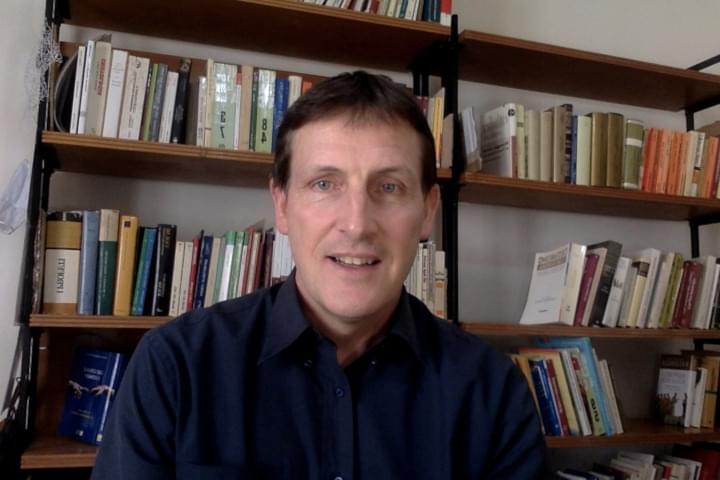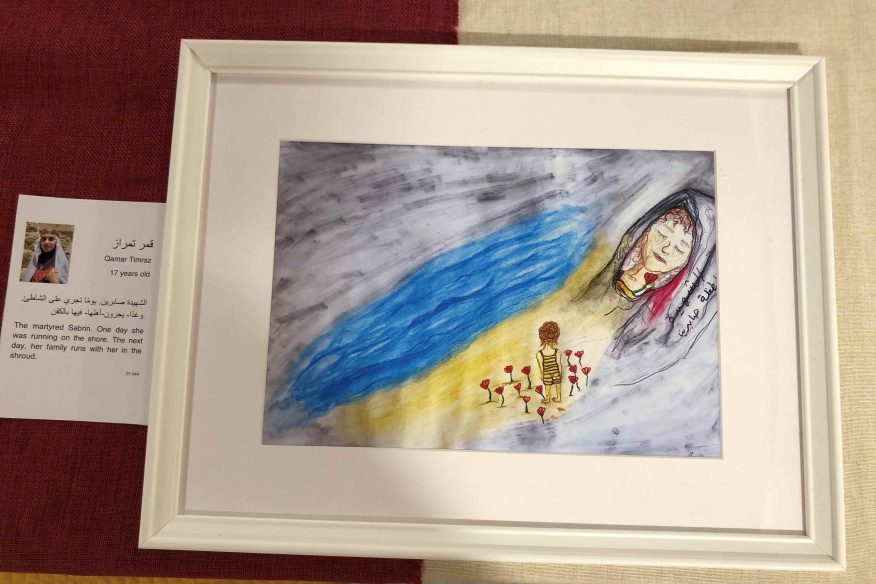Sergio Sala SJ
His plan was more complete than mine
I first encountered the Jesuits when I was 18. A summer camp in Selva di Val Gardena, followed by three days of Spiritual Exercises, changed everything.

I was born in Vicenza in 1968. I carry with me, from Veneto region, the stubbornness and the accent. Wherever I am, my speech betrays my origins, a bit like Peter in the courtyard of the high priest. Being a firm believer in the principle of inculturation, I would like to be able to be more similar to the local people, but there is no way; fortunately, inculturation does not mean giving up one’s own origins but trying to understand, accept, value and integrate the new culture with which one finds oneself living. This is one of the values I learned from my very precious family, with whom I lived a peaceful and carefree youth.
The encounter with the Jesuits and the long discernment
I first encountered the Jesuits when I was 18. A summer camp in Selva di Val Gardena, followed by three days of Spiritual Exercises, changed everything: a new vision of God, of life, of myself. On the outside, I continued with the same varied existence I had always had (lots of study, the early evening in the parish or in the district, the late evening with friends, various voluntary work experiences, fundamental sentimental experiences), but on the inside, something had changed, and those who knew me noticed it.
When it came to deciding what to do with my life, that encounter turned out to be very important. Associating it with other signs the Lord had distributed along the way, I sensed it meant a calling to religious life. But it took another 10 years before I entered the Society: I would have liked to keep all the benefits that the camp in Val Gardena had bestowed, without accepting the burdens. Only after admitting to myself that God’s plan was more integral and comprehensive than mine, in boxist terms, only after I had “thrown in the towel,” did the path become easier. Obviously, even now there is no shortage of problems, but here it is not a question of avoiding problems but rather of facing them with the necessary calm and strength.
Chemistry studies and international volunteer work in Brazil
Before the novitiate there were two important formative chapters in my life: chemistry studies and international volunteer work. The fascinating research of the infinitely small helped unveil the infinitely large, and the university gave me a certain methodical approach that I know how to bring out, when needed. The two and a half years in Brazil were a fantastic training ground for life: I lived in a small town surrounded by an “ocean” of sugar cane, and in a youth center surrounded by an “ocean” of children. Among the many experiences, the most striking, unexpected and slightly risky was in the field of land reform: the preparation and accompaniment of an occupation of mortgaged and uncultivated land. Upon returning to Vicenza, I tried to return to “normal” life, but by then I was “done”, so I resumed contact with those who would soon become my confreres.
Formation in the Society
The long years of formation in the Society went by in a flash. This paradox is commonly expressed with words like “Time flies”, “It seems like yesterday”, and is generally considered a sign that things are going well. They have been very intense years, so much so that just listing the experiences I’ve had and the people I’ve met would exceed the maximum space allowed for this presentation.
On the other hand, my curiosity and the enormous possibility of human and cultural knowledge that the formation of a Jesuit provides have produced a highly enjoyable cocktail, with the only risk of getting drunk, that is, of taking time away from rest.
Theology is fascinating, and if we complain (sometimes rightly) that some courses should be rethought, the fact remains that the academic level is high. Among the various disciplines I have privileged biblical theology and Christology, while I found the study of ethics heavy: but when, for reasons of apostolate, I found myself between the anvil and the hammer of a problem of bioethics, I gave thanks for being fresh from the study of ethics of physical life. At that moment I also felt the importance of ongoing formation, once basic formation was completed. The problems that people face are such that we need to know a bit of everything, and since this is not possible, our great resource is networking, an issue on which the trainers insist.
From Brazil to Scampia, from Sri Lanka to Reggio Calabria, new and old poverties
I had the good fortune to return to Brazil, to finish my License studies, while I was taking my first steps, as a priest, in one of the many parish communities assisted by the Jesuits, on the outskirts of Belo Horizonte. Upon returning to Italy, my first long-term apostolic experience began, in Scampia in the Neapolitan hinterland, where I lived for ten years until 2019, with a six-month interruption for Tertianship in Sri Lanka. My new destination is Reggio Calabria where I will be mainly involved in the Chaplaincy within the Mediterranean University.
Throughout the variety of paths I have taken, one common thread remains: an interest in old and new forms of poverty. I have worked with drug addicts, AIDS patients, migrants, Roma, and other brothers and sisters in need. Regency at the Social Justice Secretariat and formation offered by the Jesuit Social Network have been of key importance in reflecting on the causes that lead these groups to suffer.
Networking
To be able to do high-quality work, it is necessary to keep together three levels of intervention: with the people, especially the weakest; with the associations that work with them; with the institutions, which are very important for solving problems, but at the same time are in deep crisis. It is up to us to try to be helpful without ever replacing social services, schools or families.
As the experiences grow, so do the responsibilities. I accept, with some weariness, the fact that you cannot have the former without the latter, always grateful to the Lord for the vocation to religious life.

